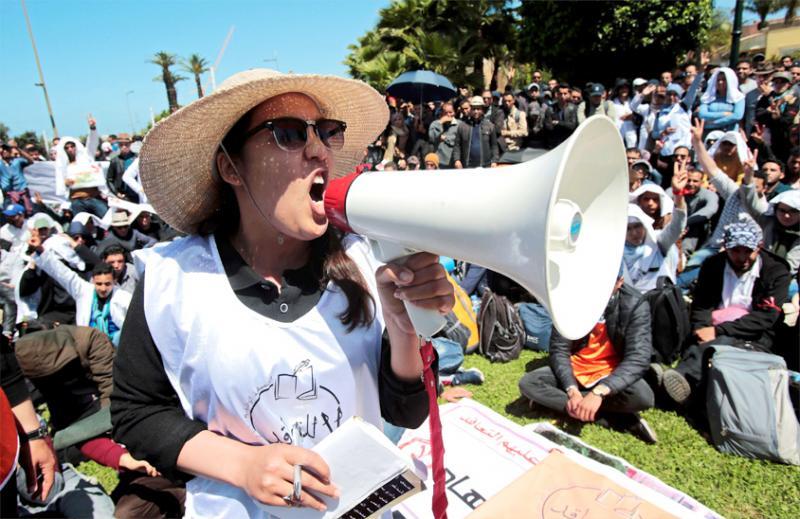Bloomberg View
By Nicholas Noe & Walid Raad In a summit ending with a call for greater “union” rather than mere “cooperation,” the oil-rich, Arab monarchies of the Gulf Cooperation Council stressed threats emanating from Iran.
Commentators were quick to add that popular revolt prompted by a lack of democracy should also be of concern to the Arab kings.
Made up of Saudi Arabia, the United Arab Emirates, Kuwait, Qatar, Oman and Bahrain, the GCC was set up in 1981 as a mechanism to balance against Iran, which the U.S. in October accused of plotting to murder the Saudi ambassador inWashington. The council has accused Iran of instigating unrest in the region. Bahrain has seen months of sometimes violent protests for greater democracy tamped down by a GCC force led by Saudi Arabia, which has itself aggressively countered unrest in several of its oil-rich, eastern provinces. But that’s not the full story, wrote columnist Hussein Ali al-Hamdani in a piece in the Iraqi daily Al-Mada headlined “The Gulf Summit, Unity Instead of Reform”:
The Gulf states realized that the West and America in particular were no longer morally able to support regimes violating human rights. They felt that in order to survive, they must unite. I do not know why these states did not consider reform, democratic transition and a respect for people’s choices instead, especially since they kept defending the Libyan people’s right to freedom, are now leading a wide-scale campaign to impose democracy in Syriaand presented a reform initiative in Yemen!
Underscoring Hamdani’s point, one leading pro-monarchy commentator, Tariq al-Homayed, in his recent column about the GCC, dropped all mention of political reform. Writing last May in his capacity as the editor-in-chief of the Saudi-owned, London-based Asharq al-Awsat, Homayed had praised the council’s decision to invite Jordan and Morocco to join, writing:
Politically speaking, the entry of the two monarchies Jordan and Morocco can be considered a message that the countries of the council do not object to political reform, as Jordan and Morocco are constitutional monarchies. In addition to what is happening in GCC countries such asKuwait, Bahrain, and elsewhere, it also means that the time for political reforms in all GCC countries has come, without exception.
By last week, however, much like the GCC — which made it clear Jordan and Morocco were not likely to gain entry to the group any time soon — Homayed had changed course, omitting any mention of the membership issue and the need for reform. Instead, he wrote:
The GCC states are currently facing genuine danger, and the greatest threat in this regard is their lack of clarity regarding a vision for the future. All of this calls for the Gulf states to take similar – although not necessary uniform – policies and decisions, for our security is under threat, as is our oil sector and our people.
The Gulf states are different from other countries in the region, Homayed wrote admiringly, since, “despite any flaws and shortcomings,” they have remained “the same today as they were yesterday,” prior to the popular revolts that have shaken other parts of the Arab world.
For columnist Jameel Theyabi, writing in a rival Saudi-owned daily, the London-based Al-Hayat, such pronouncements will no longer do. He wrote:
Every year, officials do not hesitate to describe their summits as being exceptional and historical. The Gulf citizens have become sick and tired of this broken record. The leaders of the GCC states are aware that their countries are facing real challenges. However, they will be unable to overcome them unless it is through the accomplishment of domestic achievements, starting with granting the people their rights and meeting their aspirations.
Failure to go down the road of domestic political reform, Theyabi concluded, “would be like planting bombs that could explode at any moment.”
Similarly, Abdel-Beri Atwan, editor-in-chief of London’s Al-Quds al-Arabi, advised Jordan and Morocco to embark on reforms as a reaction to the snub by the GCC — which allocated $5 billion in aid to be divided between them, a sum Atwan dismissed as meager compared with their economic problems and the income of the Gulf monarchies. He urged:
The Jordanian-Moroccan response to this insult should be more democratic reforms and wise governance based on justice, equality, an independent judiciary, an insistence on addressing the key causes of the nation and ending all forms of affiliation with external parties. This is the right way to present an honorable archetype that the Gulf populations will seek to emulate.
Now there’s an interesting idea: model behavior as the best form of revenge.
(Nicholas Noe and Walid Raad are the Beirut correspondents for the World View blog. The opinions expressed are their own.)
To contact the writers of this article:
noe.
To contact the editor responsible for this article:
Lisa Beyer at lbeyer3 or +1-212-205-0372.


